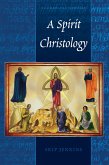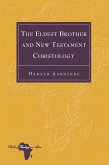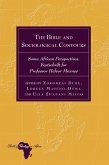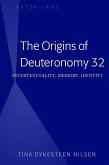Many New Testament Greek grammarians assert that the Greek attributive participle and the Greek relative clause are "equivalent." Michael E. Hayes disproves those assertions in An Analysis of the Attributive Participle and the Relative Clause in the Greek New Testament, thoroughly presenting the linguistic categories of restrictivity and nonrestrictivity and analyzing the restrictive/nonrestrictive nature of every attributive participle and relative clause. By employing the Accessibility Hierarchy, he focuses the central and critical analysis to the subject relative clause and the attributive participle. His analysis leads to the conclusion that with respect to the restrictive/nonrestrictive distinction these two constructions could in no way be described as "equivalent." The attributive participle is primarily utilized to restrict its antecedent except under certain prescribed circumstances, and when both constructions are grammatically and stylistically feasible, the relative clause is predominantly utilized to relate nonrestrictively to its antecedent. As a result, Hayes issues a call to clarity and correction for grammarians, exegetes, modern editors, and translators of the Greek New Testament.
Dieser Download kann aus rechtlichen Gründen nur mit Rechnungsadresse in A, D ausgeliefert werden.
"It is one thing to look at a number of examples, even a great number. It is another thing to look at all of the examples, and that is exactly what Michael E. Hayes has done with his nonpareil study of attributive participles and relative clauses. Building upon my own growing suspicion that the two constructions are not equivalent in Koine Greek, he develops overwhelming facts, establishing the largely distinct nature of each construction, though acknowledging areas of overlap. This is the way linguistic understanding makes progress, viz., not by computer analysis but by the hard work of actually looking at data in context. Kudos!" -James W. Voelz, Dr. Jack Dean Kingsbury Professor of New Testament Theology, Concordia Seminary

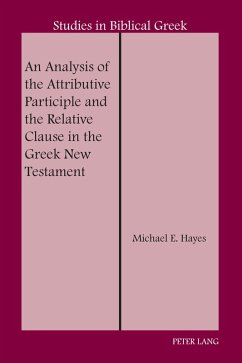

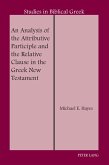
![Presupposition and [E]motion (eBook, PDF) Presupposition and [E]motion (eBook, PDF)](https://bilder.buecher.de/produkte/68/68467/68467497m.jpg)
